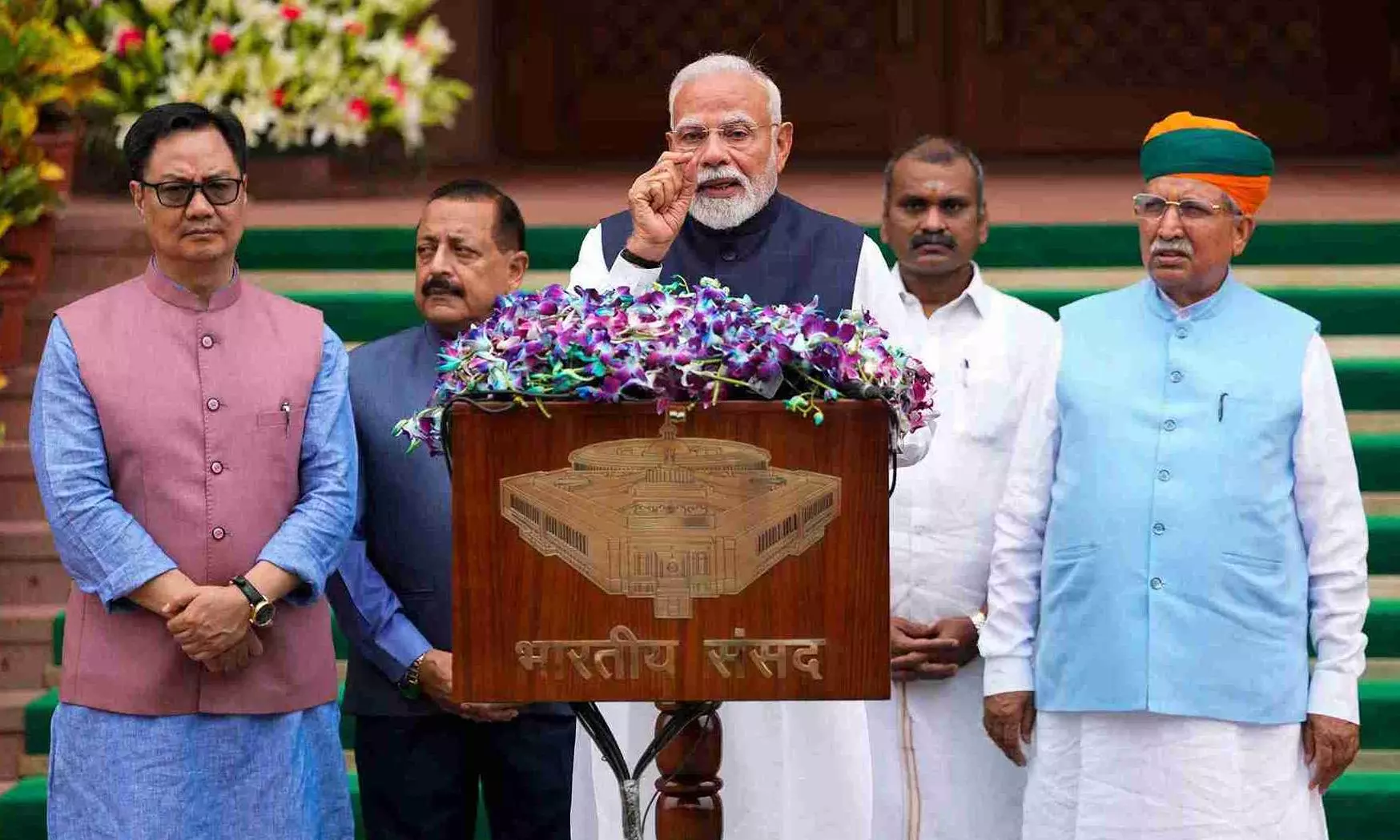
PM Modi highlights Op Sindoor, Naxalism, space in Parliament address: 5 points
Prime Minister Modi touches upon India's military might, economic progress, and recent space achievements ahead of the Monsoon session on Monday

From Operation Sindoor to the fight against Naxalism to inflation to space, Prime Minister Narendra Modi touched upon several key issues in his address ahead of the Parliament’s Monsoon session on Monday (July 21).
Hailing the Army’s might in destroying terror sites in Pakistan during Operation Sindoor, Modi said he wanted the session to be “productive and filled with enriching discussions that strengthen India’s democracy”.
Here are five key points from Modi’s address:
1. Operation Sindoor
Operation Sindoor dominated the prime minister’s speech. He said under the manoeuvre carried out by the armed forces in the wake of the Pahalgam terror attack, “the houses of the masters of terrorists were razed to the ground within 22 minutes”.
“The whole world has seen the strength of India’s military power. The target set by the Indian Army in Operation Sindoor was achieved 100 per cent,” he said.
“The world has been very attracted to this new form of Made-in-India military power. These days, whenever I meet people of the world, their attraction towards the weapons being made by India is increasing,” he claimed.
Also read: Monsoon Session: Whole world saw strength of India's military power, says PM Modi
2. Battle against Maoism
The recent push to end Maoist terror once and for all, and the major victories in that area, found a spot in Modi’s speech.
“Today, our security forces are progressing forward to end Naxalism with a new self-confidence and resolve. Many districts are free of Naxalism today. We are proud that the Indian Constitution is emerging victorious against Naxalism. The ‘Red corridors’ are transforming into ‘green growth zones’,” he asserted.
3. Space odyssey
The recent journey of Indian astronaut Shubhanshu Shukla to the International Space Station — the first for the country — expectedly found a mention in the prime minister’s speech.
“This Monsoon session of Parliament is like a victory celebration. India’s flag being hoisted at the International Space Station is a moment of pride for every Indian. All MPs and the countrymen in one voice will glorify this feat. It will be an inspiration for our future missions,” Modi said.
Also read: Centre open to Parliament debate on Op Sindoor, Bihar SIR; mum on PM Modi's reply
4. Economic feats
Modi took the opportunity to claim that “India is moving ahead at a fast pace towards becoming the third-largest economy of the world” and that “25 crore poor people have come out of poverty” under his tenure as the prime minister, since 2014.
Taking the usual dig at the preceding Congress-led UPA government, he said, “When you [Indian citizens] gave us the responsibility in 2014, the country was going through the stage of Fragile Five. Before 2014, we were at number ten in the global economy. Today, India is moving ahead at a fast pace towards becoming the third-largest economy of the world.”
“There was a time in the country before 2014 when the inflation rate was in double digits. Today, with the rate dropping to around two per cent… As many as 25 crore people have come out of poverty, which is being appreciated by many institutions of the world,” he stated.
Modi also stated that according to reports, monsoon is progressing very well in the country. “Monsoon is a symbol of innovation and new creation. There are reports of this being a beneficial season for agriculture,” he claimed.
Also read: All-party meet: Centre ready to discuss Op Sindoor in Monsoon Session, says Rijiju
5. Power of unity
Modi concluded his speech by saying that the country has seen the power of unity. “So, all the MPs must give it strength, take it forward, and I will definitely say that even though every political party has its own agenda, its own role, but I accept one reality — “Dal hit mein mat bhale na mile lekin desh hit mein mann jarur mile (Even if opinions differ in the interest of a party, there must be unity of opinions in the interest of the nation.”)

